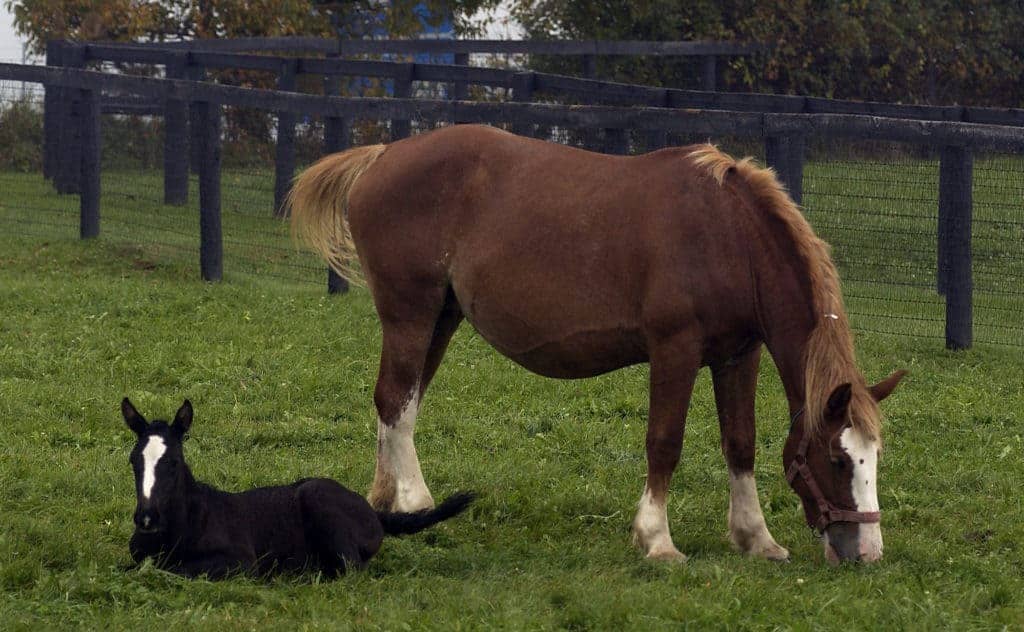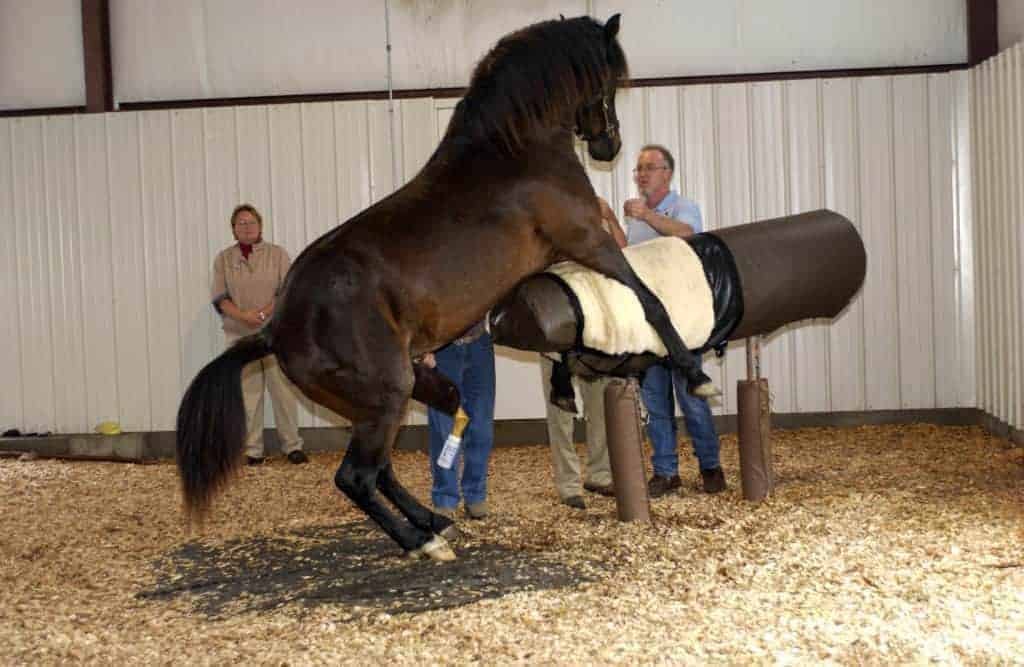CDA Issues 2012 Colorado Livestock Disease Recap
Equine herpesvirus-1, vesicular stomatitis, and West Nile virus were all confirmed in Colorado horses in 2012.
Equine herpesvirus-1, vesicular stomatitis, and West Nile virus were all confirmed in Colorado horses in 2012.

There were few performance differences between foals born to healthy mares and those treated for placentitis.

British trainer Victor Dartnall is dealing with an outbreak of neurologic EHV-1 at his yard in North Devon.

The horses are currently being treated at the University of Minnesota Large Animal Hospital.

Two of the cases are in isolation at the University of Minnesota. The third was euthanized on the home farm.
Nov. 7 results indicate 85 horses are negative for EHV-1; also, Oaklawn Park bans Hawthorne horses.

Estrous cycles and certain disease processes can affect mares’ reproductive hormones.
Two additional horses at Hawthorne Race Course in Cicero, Ill., were moved to an isolation barn area Oct. 26

The measures are in response to a deadly outbreak of equine herpesvirus-1 at an Illinois race track.

Dr. Klaus Osterrieder of the Freie Universitaet Berlin Institut feur Virologie, in Germany, discusses some key points horse owners should know about equine herpesvirus.

Two other horses residing at the same farm as the confirmed case were euthanized due to neurologic signs.
At least one horse has died and at least one more has contracted the disease.

Contagious equine metritis (CEM) gives rise to considerable concern among horse breeders in many countries.

Researchers found an intravaginal progesterone-releasing device effective in inducing early estrus in mares.

Mobile blue-light therapy is as effective at advancing seasonality as indoor barn lighting.
Equine influenza, equine herpesvirus, strangles, contagious equine metritis, and confirmed around the world.
Stay on top of the most recent Horse Health news with
"*" indicates required fields